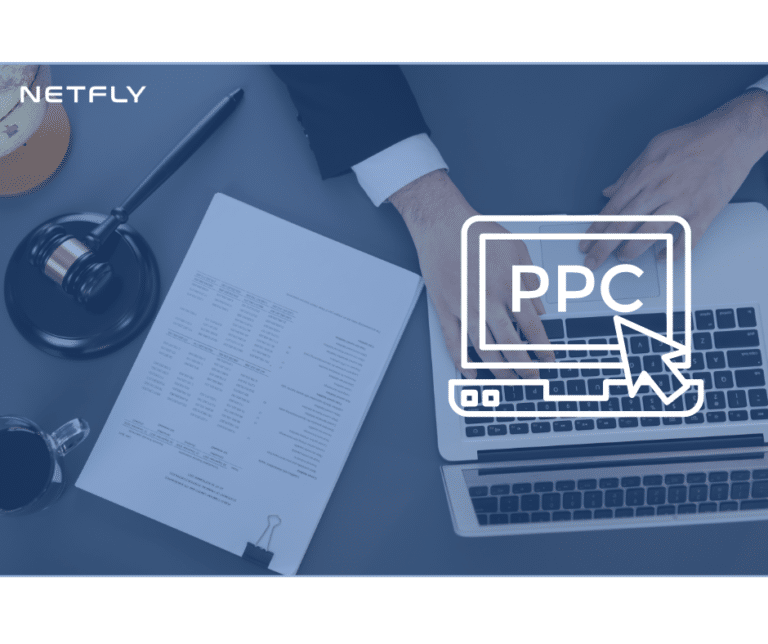You might not realize the untapped potential that social media marketing holds for law firms in expanding their online presence and engaging with a broader audience. It’s not just about posting content; it’s about strategically positioning your firm to stand out amidst the digital noise. By understanding the nuances of each platform, tailoring your content to resonate with your target demographic, and leveraging the power of analytics to enhance your approach, you can harness the full potential of social media for your firm.
Key Takeaways
- Create high-quality content to engage and educate your audience.
- Select social media platforms based on target audience and business goals.
- Utilize diverse content types for audience preferences.
- Leverage paid advertising for precise audience targeting.
- Analyze metrics for optimization and data-driven decision-making.
Understanding Social Media Marketing Basics
To effectively navigate the world of social media marketing for law firms, understanding the fundamental basics is vital for strategic success. When it comes to content creation, quality reigns supreme. Crafting engaging and informative content tailored to your target audience is key. Educational pieces that provide value to your audience can help establish credibility and expertise in the field of law firm marketing. Remember, each piece of content should strike a balance between expertise, authenticity, depth, and audience engagement while adhering to SEO best practices.
Engagement metrics play an important role in determining the success of your social media efforts. Monitoring metrics such as likes, shares, comments, and click-through rates is necessary to gauge how well your content is resonating with your audience. By analyzing these metrics, you can gain valuable insights into what type of content performs best and tailor your future content creation efforts accordingly.
Identifying Key Social Media Platforms
When identifying key social media platforms for your law firm, consider platform selection criteria, target audience analysis, and content strategy alignment.
These elements are essential in determining where your firm should focus its social media presence to maximize engagement and reach the right audience effectively.
Platform Selection Criteria
Choosing the most suitable social media platforms for your law firm requires a strategic evaluation based on your target audience and business objectives. Start by conducting thorough platform evaluation and competitor analysis to identify where your competitors are present and how they engage with their audience.
Look into engagement metrics to understand which platforms are most effective in driving interactions and audience segmentation to determine where your target clients are most active. Consider the nature of your legal services and the type of content you plan to share.
For instance, visual platforms like Instagram might be ideal for firms focusing on personal injury law. By aligning your platform selection with your specific goals and audience preferences, you can maximize your social media impact effectively.
Target Audience Analysis
Conducting a thorough analysis of your target audience is essential in determining the key social media platforms for your law firm’s marketing strategy. To effectively identify the platforms that will yield the best results, consider the following:
- Demographic Insights: Understanding the age, location, interests, and online behavior of your target audience is vital for selecting the most suitable social media platforms.
- Engagement Tactics: Analyze the types of content that resonate with your audience to tailor your engagement strategies accordingly.
- Platform Preferences: Research which social media platforms your target audience frequents the most and focus your efforts on those channels to maximize your reach and impact.
Content Strategy Alignment
To optimize your law firm’s social media marketing efforts, strategically aligning your content strategy with the most relevant social media platforms is vital for maximizing engagement and visibility.
When considering strategy alignment challenges, conduct competitive analysis to identify where your competitors are active and how they’re engaging with their audience. This analysis can provide valuable insights into which platforms are most effective within your industry.
Maintaining brand consistency across all platforms is essential to establish a strong and recognizable presence. Additionally, audience segmentation is key; tailor your content to resonate with different segments of your target audience on each platform.
Crafting Engaging Content Strategies
When crafting engaging content strategies for law firms, remember to focus on:
- Content planning strategies
- Audience engagement techniques
Your content should be well-thought-out and designed to captivate your target audience’s attention while delivering valuable information.
Content Planning Strategies
Crafting engaging content strategies for law firms requires a meticulous blend of creativity, data-driven insights, and a deep understanding of the target audience’s needs and preferences. To guarantee your content resonates effectively, consider the following:
- Developing an Editorial Calendar: Plan your content creation schedule in advance to maintain consistency and relevance.
- Utilizing a Content Calendar: Organize your topics, formats, and distribution channels efficiently to optimize engagement.
- Incorporating Varied Content Types: Experiment with articles, case studies, infographics, and videos to cater to diverse audience preferences.
Audience Engagement Techniques
Engage your audience effectively by implementing diverse and interactive content strategies tailored to their preferences and needs. Utilize interactive polls to gather insights and spark discussions around relevant legal topics. These polls not only encourage participation but also provide valuable data for refining your content strategy.
Additionally, consider hosting live webinars where you can explore further into complex legal issues, engage with your audience in real-time, and establish your firm as a thought leader in the legal industry. By offering a mix of interactive polls and live webinars, you can create a dynamic and engaging online presence that resonates with your audience and strengthens your firm’s position as a go-to resource for legal insights and expertise.
Leveraging Paid Advertising Opportunities
To maximize your law firm’s visibility and reach, consider strategically harnessing the power of paid advertising opportunities. Paid advertising can greatly enhance your online presence and help you target specific audiences effectively. Here are some key strategies to leverage paid advertising successfully:
- Ad Targeting: Utilize the advanced targeting options provided by social media platforms to make sure your ads reach the right audience. Narrow down your target demographic based on factors such as location, interests, and behavior to maximize the impact of your campaigns.
- Budget Management: Carefully plan and allocate your advertising budget to optimize results. Monitor the performance of your ads regularly and adjust your spending based on which ads are generating the most engagement. Testing different budget allocations can help you find the best balance between cost and effectiveness.
- Ad Creatives: Create compelling and visually appealing ad creatives that resonate with your target audience. Use high-quality images, engaging copy, and clear calls-to-action to entice users to click on your ads. Experiment with different ad formats to see which ones perform best for your law firm.
Implementing Analytics for Optimization
Utilize data-driven insights to optimize your law firm’s online performance effectively. Analyzing metrics is important in understanding how your social media efforts are performing. By delving into key performance indicators such as engagement rates, click-through rates, and conversion rates, you can gain valuable insights into what resonates with your audience and what areas need improvement.
Optimization techniques play an important role in refining your social media strategy. Once you have identified the metrics that matter most to your firm, use this data to make informed decisions. For instance, if you find that a particular type of content consistently drives high engagement, consider producing more of that content to further engage your audience.
A/B testing is another valuable optimization technique that allows you to experiment with different approaches and determine which ones yield the best results. By testing variables such as ad copy, images, or posting times, you can refine your strategy based on real-time feedback.
Regularly monitoring and analyzing these metrics will enable you to adapt your social media strategy in real-time, ensuring that you’re continually enhancing your online performance. By implementing analytics for optimization, you can fine-tune your social media efforts to maximize your reach and impact effectively.
Building a Strong Social Media Community
Establishing a vibrant and engaged social media community is pivotal for law firms aiming to foster meaningful connections with their target audience. When focusing on community building and engagement strategies, here are three key points worth noting:
- Consistent Interaction: Regularly engage with your audience by responding to comments, messages, and inquiries promptly. Show that you value their input and are actively listening to their needs and concerns.
- Content Variety: Offer a mix of content types, including informational posts, engaging visuals, polls, surveys, and even interactive sessions like live Q&A sessions. Diversifying your content keeps your audience interested and encourages active participation.
- Collaboration and Partnerships: Partner with other reputable organizations, influencers, or professionals in related fields to expand your reach and credibility. Collaborative efforts can introduce your firm to new audiences and provide fresh perspectives that enhance your community’s overall experience.
Frequently Asked Questions
How Can Law Firms Maintain Brand Consistency Across Different Social Media Platforms?
To maintain brand consistency across social media platforms, focus on content consistency and visual branding.
Engage users with strategic engagement strategies to reinforce your brand image.
Be prepared with crisis management plans to address any issues promptly.
What Are Some Best Practices for Managing Negative Feedback or Comments on Social Media?
When dealing with negative feedback on social media, responding professionally is key. Address concerns promptly and tactfully to show you value client feedback. Use these interactions as an opportunity to showcase your commitment to client satisfaction and transparency.
Managing your reputation effectively involves acknowledging criticism, offering solutions, and maintaining a respectful tone. By handling negativity with grace, you can turn challenges into opportunities to strengthen your brand image and build trust with your audience.
Is It Advisable for Law Firms to Use Social Media Influencers for Marketing Purposes?
When considering influencer partnerships for law firms, ethical considerations are paramount. Assess the impact and credibility of influencers aligning with your firm’s values. Transparency and authenticity are key in maintaining trust.
Collaborating with influencers who uphold professional standards can expand your reach but guarantee their messaging aligns with your brand’s integrity. Evaluate the potential benefits against ethical concerns to make an informed decision that enhances your firm’s reputation.
How Can Law Firms Effectively Integrate Social Media Marketing With Their Overall Digital Marketing Strategy?
When integrating social media into your digital marketing strategy, focus on engaging content strategies. Develop a robust content calendar aligned with your target audience’s preferences.
Utilize analytics tracking to measure the impact of your efforts. By understanding what resonates with your audience, you can tailor your approach for maximum effectiveness.
Stay consistent, analyze data to refine your tactics, and watch your online presence grow strategically.
What Are the Key Metrics That Law Firms Should Track to Measure the Success of Their Social Media Campaigns?
When tracking your social media campaigns, focus on key metrics like engagement rates, conversion rates, reach, and impressions.
These metrics help you gauge how effectively your content resonates with your audience, drives actions, and expands your online presence.
Final Thoughts
To sum up, by implementing a strategic social media marketing approach, you can elevate your law firm’s online presence and engage with your target audience effectively. Leveraging key platforms, crafting engaging content, utilizing paid advertising, analyzing data for optimization, and building a strong community are essential steps in maximizing your reach and impact.
Take the next step towards enhancing your digital strategy and watch your firm thrive in the competitive digital landscape. It’s time to make your mark and stand out from the crowd.










